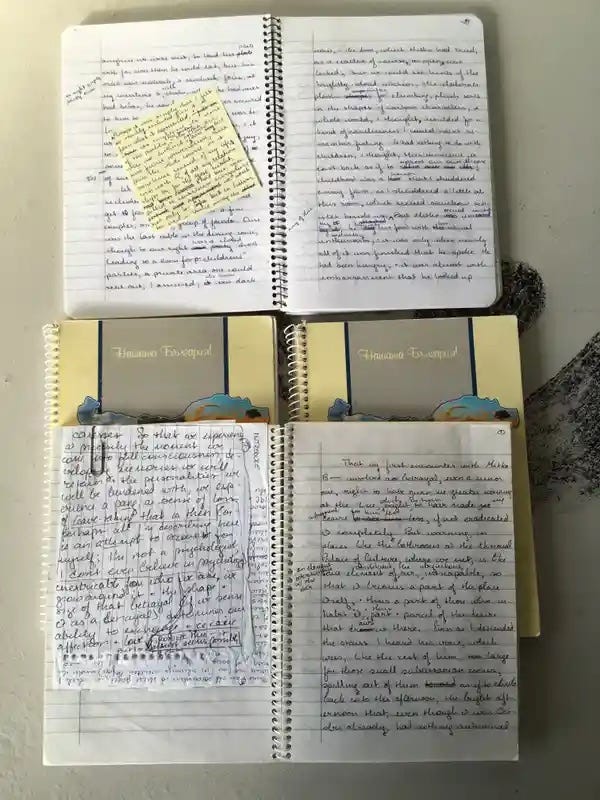My third book, Small Rain, comes out on September 3. Please pre-order by asking for it at your local bookstore, or through any of these links: Bookshop, Powells, Barnes & Noble, Books-a-Million, Amazon. There are even more links at the Macmillan page.
Tickets are available for the September 3rd launch of Small Rain at the Center for Fiction, where I’ll be in conversation with The New Yorker’s Alexandra Schwartz. (Note that the ticket price includes a copy of the book.) It would be wonderful to see you there. Details about more tour dates coming soon.
Something different this week, an experiment. It’s now, wildly, less than six weeks until the launch of Small Rain, and as I feel myself slide into the weird altered state that is book publication I’ve been remembering a short essay I published in Publishers Weekly in 2015, a couple of months before the release of my first novel. I thought that I might reprint an annotated version of that essay here, tracking what feels similar in publishing a book the third time around, and what feels different—and also diving into some tangents about the best notebooks for novel-writing, how to trick yourself into writing something you’re scared of writing, losing friends, lazy reviewers, the fallacy of the “Iowa aesthetic,” the psychosis of novel publication, etc. You won’t be surprised to hear that the annotations ended up being longer than the original essay.
An experiment, as I say, and I’m not sure what the least annoying option for formatting is. I’ve chosen footnotes, so that you can read the essay without disruptive bracketed interpolations, then click on the hypertext numbers to toggle back and forth in the text. Feel free to complain about the format (hopefully while also suggesting a better way for next time) in the comments!
Here, then, are some words from 37-year-old me, with 46-year-old me looking over his shoulder.
I wrote my first novel in the early mornings, in two-hour increments sitting in an uncomfortable chair by a window that looked out on a district of huge, Soviet-style apartment blocks. These were dire by day but strangely beautiful before dawn, when their concrete facades were more or less invisible in the dark and the little rectangular windows lit up in an order that over time became familiar, as did the figures who appeared at them for their first cigarettes of the day. I was living in Sofia, Bulgaria, where I taught high school English from 2009 to 2013. I had learned that after a day at school, which usually meant six hours of classes and an afternoon meeting, I was too exhausted to write, and so I got up at 4:30 every morning, set the water boiling for several cups of Nescafe, and settled in to work. It took three years.1 I wrote the book by hand, in a series of slim spiral-bound notebooks I bought for a lev—about seventy cents—at a little stationery store on the way to school. They were wide-ruled, meant for schoolchildren, and the ones I liked best had scenes of idealized village life on their covers, the words Нашата България—our Bulgaria—scrawled across the top.2 Something about composing by hand in a foreign country in the early morning dark, without a computer and its irresistible distractions, with just a small lamp lighting the page, turned writing into the most intense privacy I had ever known. I was working in a kind of figurative dark, too, since I had never written fiction before and was feeling my way forward sentence by sentence, without a clear model or shape in mind. For long stretches, months at a time, a year, I didn’t show my pages to anyone; I wrote without imagining a reader, and so without the anxiety of judgment.3




